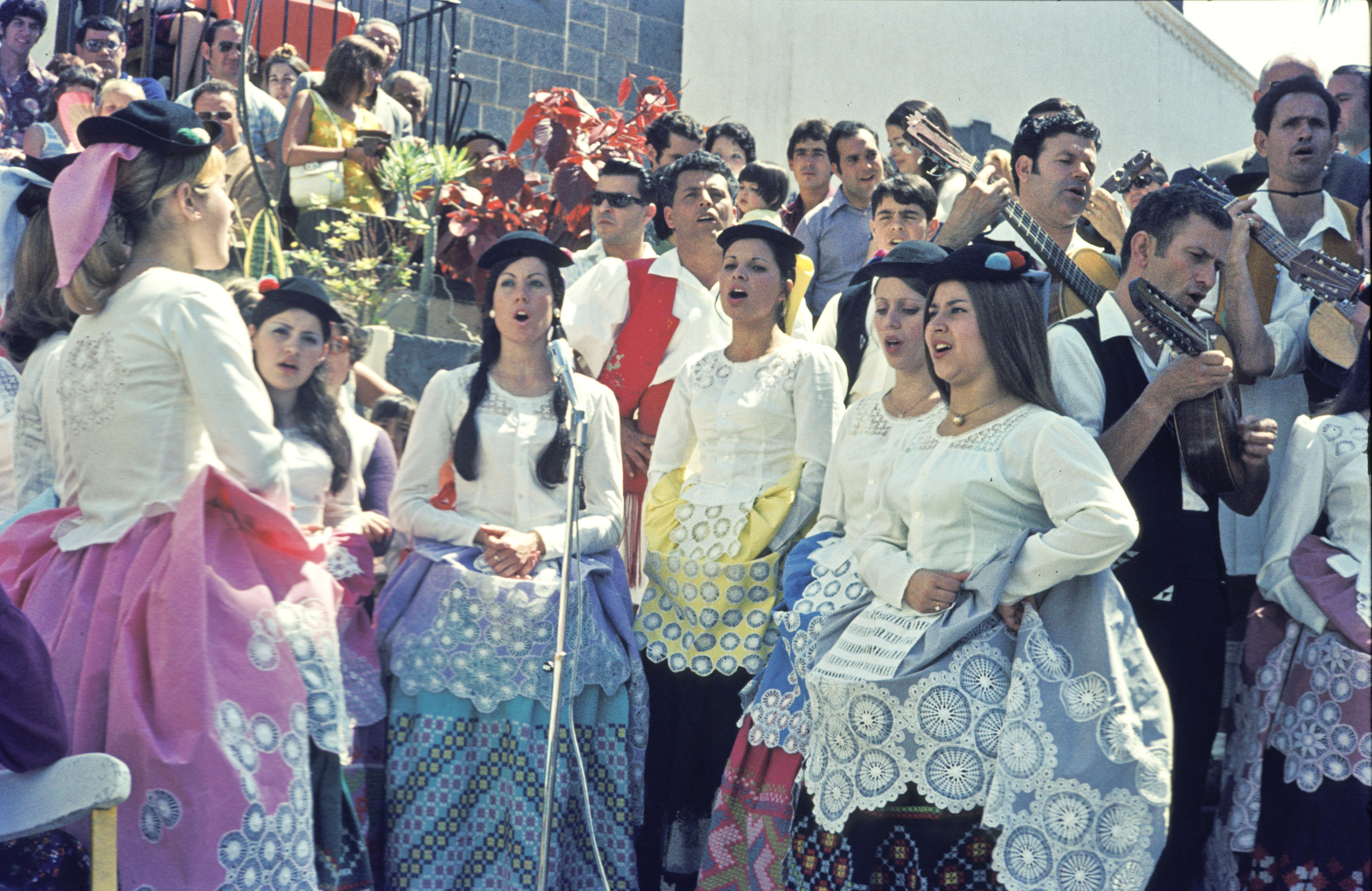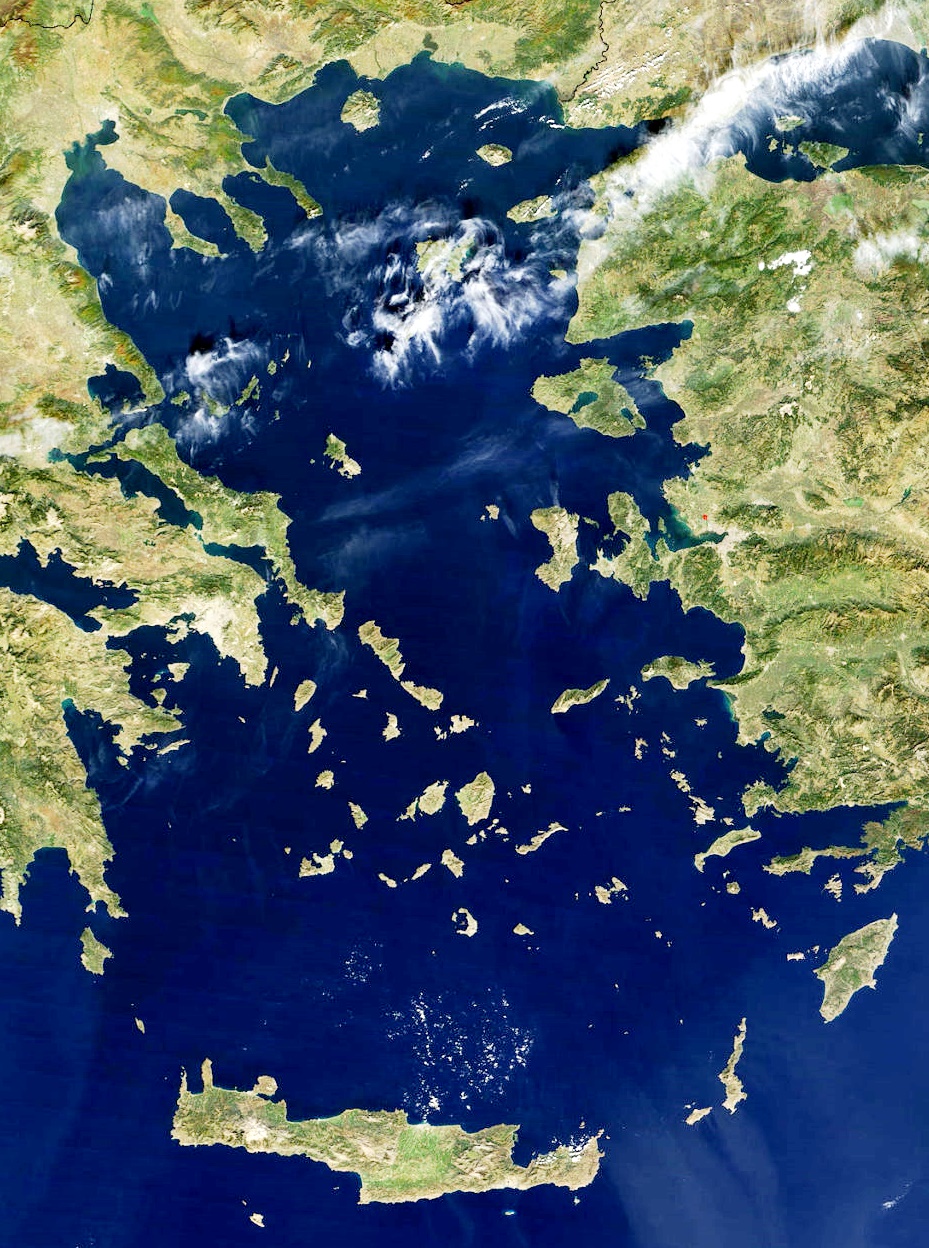|
Islas Canarias
The Canary Islands (; es, :es:Canarias, Canarias, ), also known informally as the Canaries, are a Spanish Autonomous communities of Spain, autonomous community and archipelago in the Atlantic Ocean, in Macaronesia. At their closest point to the African mainland, they are west of Morocco. They are the southernmost of the autonomous communities of Spain. The islands have a population of 2.2 million people and they are the most populous Special member state territories and the European Union, special territory of the European Union. The seven main islands are (from largest to smallest in area) Tenerife, Fuerteventura, Gran Canaria, Lanzarote, La Palma, La Gomera, and El Hierro. The archipelago includes many smaller islands and islets, including Graciosa, Canary Islands, La Graciosa, Alegranza, Islote de Lobos, Isla de Lobos, Montaña Clara, Roque del Oeste, and Roque del Este. It also includes a number of rocks, including those of Salmor, Fasnia, Bonanza, Roque de Garachico, Ga ... [...More Info...] [...Related Items...] OR: [Wikipedia] [Google] [Baidu] |
Canarian People
Canary Islanders, or Canarians ( es, canarios), are a Romance people and ethnic group. They reside on the Canary Islands, an autonomous community of Spain near the coast of northwest Africa, and descend from a mixture of European settlers and aboriginal Guanche peoples.Ricardo Rodríguez-Varel et al. 2017Genomic Analyses of Pre-European Conquest Human Remains from the Canary Islands Reveal Close Affinity to Modern North Africans/ref> Genetics shows modern Canarian people to be, on average, a population of mostly European ancestry, with some Northwest African admixture. The distinctive variety of the Spanish language spoken in the region is known as ''habla canaria'' (''Canary speech'') or the (''dialecto'')'' canario'' (Canarian dialect). The Canarians, and their descendants, played a major role during the conquest, colonization, and eventual independence movements of various countries in Latin America. Their ethnic and cultural presence is most palpable in the countries of Uruguay ... [...More Info...] [...Related Items...] OR: [Wikipedia] [Google] [Baidu] |
Spanish Language
Spanish ( or , Castilian) is a Romance languages, Romance language of the Indo-European language family that evolved from colloquial Latin spoken on the Iberian peninsula. Today, it is a world language, global language with more than 500 million native speakers, mainly in the Americas and Spain. Spanish is the official language of List of countries where Spanish is an official language, 20 countries. It is the world's list of languages by number of native speakers, second-most spoken native language after Mandarin Chinese; the world's list of languages by total number of speakers, fourth-most spoken language overall after English language, English, Mandarin Chinese, and Hindustani language, Hindustani (Hindi-Urdu); and the world's most widely spoken Romance languages, Romance language. The largest population of native speakers is in Mexico. Spanish is part of the Iberian Romance languages, Ibero-Romance group of languages, which evolved from several dialects of Vulgar Latin in I ... [...More Info...] [...Related Items...] OR: [Wikipedia] [Google] [Baidu] |
Atlantic Ocean
The Atlantic Ocean is the second-largest of the world's five oceans, with an area of about . It covers approximately 20% of Earth#Surface, Earth's surface and about 29% of its water surface area. It is known to separate the "Old World" of Africa, Europe and Asia from the "New World" of the Americas in the European perception of Earth, the World. The Atlantic Ocean occupies an elongated, S-shaped basin extending longitudinally between Europe and Africa to the east, and North America, North and South America to the west. As one component of the interconnected World Ocean, it is connected in the north to the Arctic Ocean, to the Pacific Ocean in the southwest, the Indian Ocean in the southeast, and the Southern Ocean in the south (other definitions describe the Atlantic as extending southward to Antarctica). The Atlantic Ocean is divided in two parts, by the Equatorial Counter Current, with the North(ern) Atlantic Ocean and the South(ern) Atlantic Ocean split at about 8th paralle ... [...More Info...] [...Related Items...] OR: [Wikipedia] [Google] [Baidu] |
Archipelago
An archipelago ( ), sometimes called an island group or island chain, is a chain, cluster, or collection of islands, or sometimes a sea containing a small number of scattered islands. Examples of archipelagos include: the Indonesian Archipelago, the Aleutian Islands, the Lakshadweep Islands, the Galápagos Islands, the Japanese archipelago, the Philippine Archipelago, the Maldives, the Balearic Islands, the Åland Islands, The Bahamas, the Aegean Islands, the Hawaiian Islands, the Canary Islands, Malta, the Azores, the Canadian Arctic Archipelago, the British Isles, the islands of the Archipelago Sea, and Shetland. Archipelagos are sometimes defined by political boundaries. For example, while they are geopolitically divided, the San Juan Islands and Gulf Islands geologically form part of a larger Gulf Archipelago. Etymology The word ''archipelago'' is derived from the Ancient Greek ἄρχι-(''arkhi-'', "chief") and πέλαγος (''pélagos'', "sea") thr ... [...More Info...] [...Related Items...] OR: [Wikipedia] [Google] [Baidu] |
List Of Spanish Autonomous Communities By Human Development Index ...
This is a list of Spain's 17 autonomous communities and the 2 autonomous cities of Ceuta and Melilla by their Human Development Index as of 2019. See also * List of countries by Human Development Index References {{reflist Human Development Index Spain Spain , image_flag = Bandera de España.svg , image_coat = Escudo de España (mazonado).svg , national_motto = '' Plus ultra'' ( Latin)(English: "Further Beyond") , national_anthem = (English: "Royal March") , ... [...More Info...] [...Related Items...] OR: [Wikipedia] [Google] [Baidu] |
Human Development Index
The Human Development Index (HDI) is a statistic composite index of life expectancy, Education Index, education (mean years of schooling completed and expected years of schooling upon entering the Educational system, education system), and per capita income indicators, which is used to rank countries into four tiers of Human development (humanity), human development. A country scores a higher level of HDI when the life expectancy at birth, lifespan is higher, the education level is higher, and the gross national income GNI (PPP) per capita is higher. It was developed by Pakistani economist Mahbub ul Haq and was further used to measure a country's development by the United Nations Development Programme (UNDP)'s Human Development Report Office. The 2010 Human Development Report introduced an List of countries by inequality-adjusted HDI, Inequality-adjusted Human Development Index (IHDI). While the simple HDI remains useful, it stated that "the IHDI is the actual level of ... [...More Info...] [...Related Items...] OR: [Wikipedia] [Google] [Baidu] |
Spanish Senate
The Senate ( es, Senado) is the upper house of the Cortes Generales, which along with the Congress of Deputies – the lower chamber – comprises the Parliament of the Kingdom of Spain. The Senate meets in the Palace of the Senate in Madrid. The composition of the Senate is established in Part III of the Spanish Constitution. The Senate is composed of senators, each of whom represents a province, an autonomous city or an autonomous community. Each mainland province, regardless of its population size, is equally represented by four senators; in the insular provinces, the big islands are represented by three senators and the minor islands are represented by a single senator. Likewise, the autonomous cities of Ceuta and Melilla elect two senators each. This direct election results in the election of 208 senators by the citizens. In addition, the regional legislatures also designate their own representatives, one senator for each autonomous community and another for every million r ... [...More Info...] [...Related Items...] OR: [Wikipedia] [Google] [Baidu] |
Congress Of Deputies (Spain)
The Congress of Deputies ( es, link=no, Congreso de los Diputados, italic=unset) is the lower house of the Cortes Generales, Spain's legislative branch. The Congress meets in the Palace of the Parliament () in Madrid. It has 350 members elected by constituencies (matching fifty Spanish provinces and two autonomous cities) by closed list proportional representation using the D'Hondt method. Deputies serve four-year terms. The presiding officer is the President of the Congress of Deputies, who is elected by the members thereof. It is the analogue to a speaker. In the Congress, MPs from the political parties, or groups of parties, form parliamentary groups. Groups must be formed by at least 15 deputies, but a group can also be formed with only five deputies if the parties got at least 5% of the nationwide vote, or 15% of the votes in the constituencies in which they ran. The deputies belonging to parties who cannot create their own parliamentary group form the Mixed Group ... [...More Info...] [...Related Items...] OR: [Wikipedia] [Google] [Baidu] |
Canarian Parliament
{{CanaryIslands-stub ...
The Parliament of the Canary Islands is the regional legislature of the Canary Islands, an autonomous community of Spain. The Parliament has seventy members and members serve on four-year terms. The parliament is based in Santa Cruz de Tenerife, one of the Canaries' two capitals. Edifice of the Parliament of the Canary Islands See also *List of presidents of the Parliament of the Canary Islands *Politics of Canary Islands *List of legislatures by country External links * 1982 establishments in the Canary Islands Canary Islands The Canary Islands (; es, Canarias, ), also known informally as the Canaries, are a Spanish autonomous community and archipelago in the Atlantic Ocean, in Macaronesia. At their closest point to the African mainland, they are west of Mo ... [...More Info...] [...Related Items...] OR: [Wikipedia] [Google] [Baidu] |
Canarian Spanish
Canarian Spanish (Spanish terms in descending order of frequency: , , , or ) is a variant of standard Spanish spoken in the Canary Islands by the Canary Islanders. The variant is similar to the Andalusian Spanish variety spoken in Western Andalusia and (especially) to Caribbean Spanish and other Hispanic American Spanish vernaculars because of Canarian emigration to the Caribbean and Hispanic America over the years. Canarian Spanish is one of those Spanish dialects in Spain to be called usually , instead of . Canarian Spanish heavily influenced the development of Caribbean Spanish and other Latin American Spanish vernaculars because Hispanic America was originally largely settled by colonists from the Canary Islands and Andalusia; those dialects, including the standard language, were already quite close to Canarian and Andalusian speech. In the Caribbean, Canarian speech patterns were never regarded as either foreign or very different from the local accent. The incorporatio ... [...More Info...] [...Related Items...] OR: [Wikipedia] [Google] [Baidu] |
Official Language
An official language is a language given supreme status in a particular country, state, or other jurisdiction. Typically the term "official language" does not refer to the language used by a people or country, but by its government (e.g. judiciary, legislature, and/or administration). 178 countries recognize an official language, 101 of them recognizing more than one. The government of Italy made Italian official only in 1999, and some nations (such as the United States, Mexico and Australia) have never declared de jure official languages at the national level. Other nations have declared non-indigenous official languages. Many of the world's constitutions mention one or more official or national languages. Some countries use the official language designation to empower indigenous groups by giving them access to the government in their native languages. In countries that do not formally designate an official language, a ''de facto'' national language usually evolves. English is ... [...More Info...] [...Related Items...] OR: [Wikipedia] [Google] [Baidu] |




